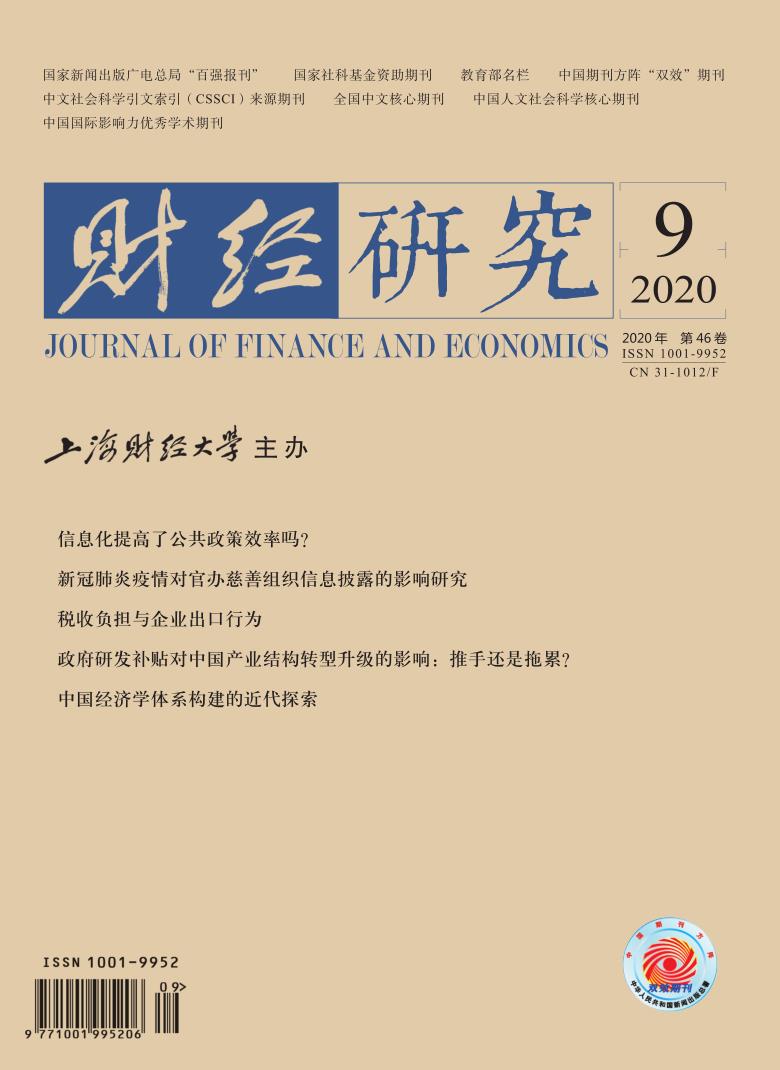短期业绩亮眼的“爆款基金”很容易受到投资者的追捧,但投资者购买这类基金的收益并不高。文章认为,这与投资者的博彩偏好有关,即投资者赋予了资产出现极端正收益这种小概率事件过高的权重。文章以中国开放式基金为样本,构建基金投资者博彩偏好指标MAX,即半年内基金月收益最大值,探讨了它与基金资金流入的关系。研究发现:(1)MAX与基金资金流入显著正相关,MAX每增加1%,未来半年内基金资金净流入增加约1.43%。(2)MAX与基金未来业绩负相关,MAX每增加1%,未来半年内经过CAPM调整后的超额收益率降低0.15%,说明基于MAX购买基金是非理性的。(3)MAX可以显著正向预测基金个人投资者的资金净流入,但对机构投资者资金流入的影响并不明显。(4)有限关注理论并不能完全解释基金MAX与资金流动的上述关系,而这与投资者的博彩偏好相符。文章为理解基金业绩与资金流动的关系提供了新视角,加深了对基金投资者行为的认识,对保护基金个人投资者利益和监管机构投资者行为有启发。
基金极端收益与资金流动——来自中国开放式基金的证据
摘要
参考文献
14 杨坤,曹晖,宋双杰. 基金业绩与资金流量:明星效应与垫底效应[J]. 管理科学学报,2013,(5):29−38. DOI:10.3969/j.issn.1007-9807.2013.05.003
20 Agarwal V, Jiang L, Wen Q. Why do mutual funds hold lottery stocks?[R]. Georgetown McDonough School of Business Research Paper No.3164692, 2019.
21 Bailey W,Kumar A,Ng D. Behavioral biases of mutual fund investors[J]. Journal of Financial Economics,2011,102(1): 1−27. DOI:10.1016/j.jfineco.2011.05.002
23 Bali T G,Brown S J,Murray S,et al. A lottery-demand-based explanation of the beta anomaly[J]. Journal of Financial and Quantitative Analysis,2017,52(6): 2369−2397. DOI:10.1017/S0022109017000928
24 Bali T G,Cakici N,Whitelaw R F. Maxing out:Stocks as lotteries and the cross-section of expected returns[J]. Journal of Financial Economics,2011,99(2): 427−446. DOI:10.1016/j.jfineco.2010.08.014
25 Barber B M,Odean T. All that glitters:The effect of attention and news on the buying behavior of individual and institutional investors[J]. The Review of Financial Studies,2008,21(2): 785−818. DOI:10.1093/rfs/hhm079
26 Barber B M,Odean T,Zheng L. Out of sight,out of mind:The effects of expenses on mutual fund flows[J]. Journal of Business,2005,78(6): 2095−2119. DOI:10.1086/497042
27 Barberis N,Huang M. Stocks as lotteries:The implications of probability weighting for security prices[J]. American Economic Review,2008,98(5): 2066−2100. DOI:10.1257/aer.98.5.2066
28 Boyer B H,Vorkink K. Stock options as lotteries[J]. The Journal of Finance,2014,69(4): 1485−1527. DOI:10.1111/jofi.12152
29 Brunnermeier M K,Gollier C,Parker J A. Optimal beliefs,asset prices,and the preference for skewed returns[J]. The American Economic Review,2007,97(2): 159−165. DOI:10.1257/aer.97.2.159
30 Chevalier J,Ellison G. Risk taking by mutual funds as a response to incentives[J]. Journal of Political Economy,1997,105(6): 1167−1200. DOI:10.1086/516389
31 Doran J S,Jiang D L,Peterson D R. Gambling preference and the new year effect of assets with lottery features[J]. Review of Finance,2012,16(3): 685−731. DOI:10.1093/rof/rfr006
32 Eraker B O R,Ready M. Do investors overpay for stocks with lottery-like payoffs?An examination of the returns of OTC stocks[J]. Journal of Financial Economics,2015,115(3): 486−504. DOI:10.1016/j.jfineco.2014.11.002
33 Fama E F,MacBeth J D. Risk,return,and equilibrium:Empirical tests[J]. Journal of Political Economy,1973,81(3): 607−636. DOI:10.1086/260061
35 Green T C,Hwang B H. Initial public offerings as lotteries:Skewness preference and first-day returns[J]. Management Science,2012,58(2): 432−444. DOI:10.1287/mnsc.1110.1431
36 Han B,Kumar A. Speculative retail trading and asset prices[J]. Journal of Financial and Quantitative Analysis,2013,48(2): 377−404. DOI:10.1017/S0022109013000100
37 Harvey C R,Siddique A. Conditional skewness in asset pricing tests[J]. The Journal of Finance,2000,55(3): 1263−1295. DOI:10.1111/0022-1082.00247
38 Huang J,Wei K D,Yan H. Participation costs and the sensitivity of fund flows to past performance[J]. The Journal of Finance,2007,62(3): 1273−1311. DOI:10.1111/j.1540-6261.2007.01236.x
40 Kumar A. Who gambles in the stock market?[J]. The Journal of Finance,2009,64(4): 1889−1933. DOI:10.1111/j.1540-6261.2009.01483.x
41 Sirri E R,Tufano P. Costly search and mutual fund flows[J]. The Journal of Finance,1998,53(5): 1589−1622. DOI:10.1111/0022-1082.00066
42 Tversky A,Kahneman D. Advances in prospect theory:Cumulative representation of uncertainty[J]. Journal of Risk and Uncertainty,1992,5(4): 297−323. DOI:10.1007/BF00122574
引用本文
李金龙. 基金极端收益与资金流动——来自中国开放式基金的证据[J]. 财经研究, 2020, 46(9): 153-168.
导出参考文献,格式为:





 6660
6660  8163
8163

